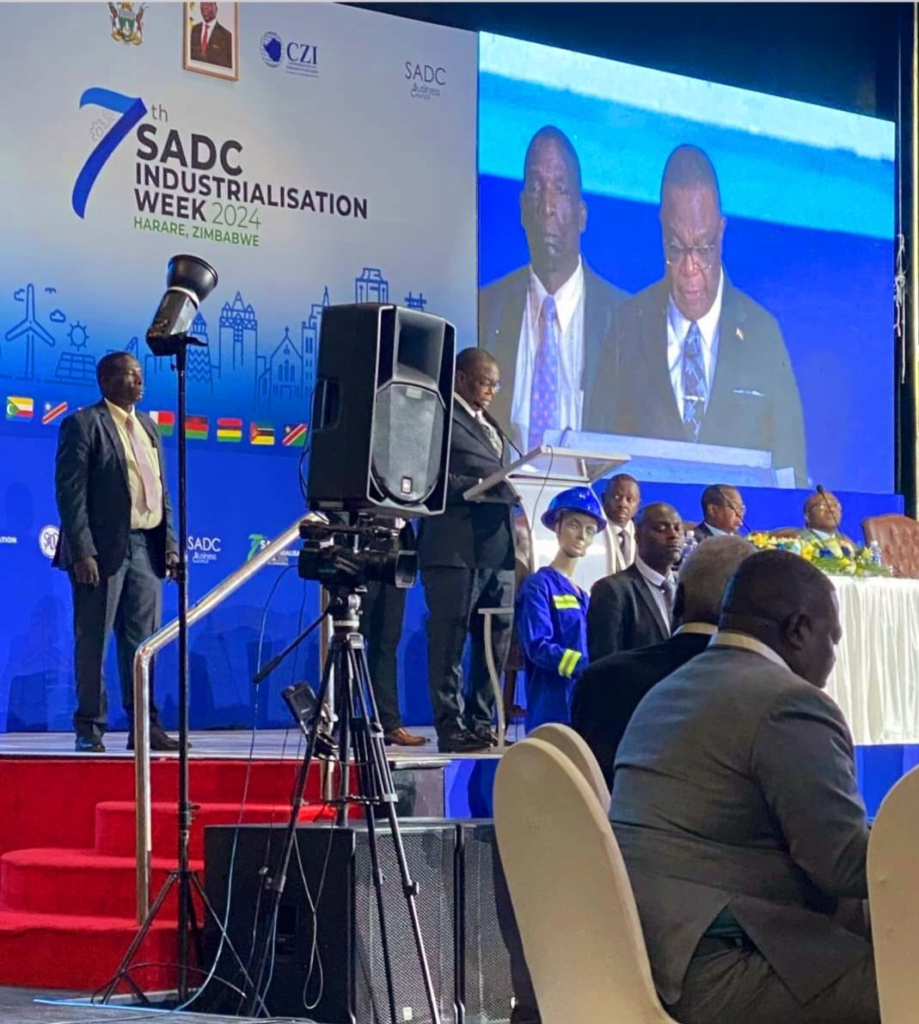ZIMBABWE HOSTS SADC INDUSTRIALISATION WEEK AMID RAPID DEINDUSTRIALISATION

The Southern African Development Community (Sadc) Industrialisation Week is happening in Harare, Zimbabwe, from July 28 to August 2, 2024. The event is a large platform for discussing industrialisation in the region. It’s an irony that Zimbabwe is hosting this event, as the country itself has been facing rapid deindustrialisation. This has caused economic turmoil and pushed millions into poverty.
Industrialisation is crucial for lifting people out of poverty, according to the United Nations Economic Commission for Africa. No country has succeeded in reducing poverty without it. The Sadc Industrialisation Week, held at the Harare International Conference Centre, brings together Sadc member states, the private sector, international partners, policymakers, researchers, SMEs, financial institutions, and civil society. They share experiences on driving industrialisation and economic transformation in the region.
The theme of this year’s event is “Promoting Innovation to Unlock Opportunities for Sustainable Economic Growth and Development Towards an Industrialised Sadc.” The week-long event includes seminars, meetings, workshops, a gala dinner, exhibitions, and site visits to manufacturing facilities and industrial hubs in Zimbabwe. Key focus areas include mineral beneficiation, agro-processing, pharmaceuticals, infrastructure development, women and youth entrepreneurship, and African Continental Free Trade Area enterprises.
The conference aims to engage various stakeholders in implementing the Sadc Industrialisation Strategy and Roadmap 2015-2063. The focus is on reviewing progress, challenges, and sharing success stories and solutions for developing regional value chains.
However, Zimbabwe has been experiencing dramatic closures of companies and deindustrialisation. Since 2000, thousands of companies have shut down. Notable names include Anglo American plc, Lonmin Plc, HJ Heinze, BP, Shell, Harven Manufacturing, Rio Tinto, David Whitehead, and airlines like British Airways, Lufthansa, and Qantas. Even banks like Barclays and Standard Chartered have left, and top accounting firms like Deloitte and PwC have also exited. These closures were due to a harsh operating environment, policy contradictions, land reform, indigenisation, and corruption.
At its independence in 1980, Zimbabwe was the second most industrialised country in Sub-Saharan Africa after South Africa. Now, it ranks among the poorest in the region. The country has become an example of poor economic management. Agriculture, mining, and manufacturing, which were once the pillars of Zimbabwe’s economy, have suffered due to poor government policies. This has led to a collapse of these sectors and massive unemployment.
An estimated 90% of Zimbabweans are unemployed and have turned to the informal sector, mainly vending second-hand clothes and basic items. Many have fled to neighboring countries like Botswana and South Africa, or overseas to the United Kingdom, Australia, Canada, and the United States.
The manufacturing sector specifically has collapsed by 2015, with companies either folding or relocating. The decline started in the 1990s and continues today. Bulawayo, once the industrial hub of the nation, has turned into economic rubble due to deindustrialisation. The Belmont industrial area is now filled with churches and non-manufacturing activities.
Industrialisation is essential for rapid and sustainable economic development. According to the UN Economic Commission for Africa, the contribution of manufacturing to GDP in Southern Africa is very low. In 2018, it was only 11.8%, with some countries even lower. Most economies in the region rely on a few primary commodities for revenue.
There are opportunities for industrialisation in Southern Africa through value addition to commodities, beneficiation, and subregional integration. For successful industrialisation, it is crucial to upgrade productive capacity, promote investment in modern industries, develop value chains, and deepen subregional integration and trade. The necessary conditions include addressing infrastructure deficits, adopting sound macroeconomic policies, promoting technological learning, and building an export-oriented manufacturing sector.



